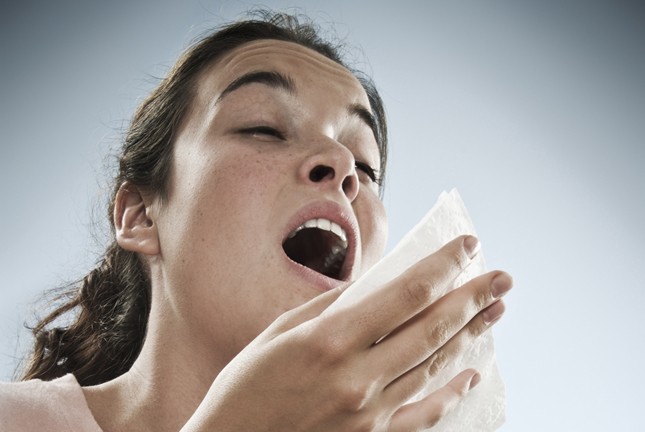If you feel like you’re coming down with something, you might need to phone a friend. In a new study in Health Psychology, participants who felt lonelier were more likely to feel worse common cold symptoms five days after being exposed to the cold virus. The lonelier they were walking into the study, the worse the symptoms they experienced.
It wasn’t the size of someone’s social network (how many close relationships they have) that correlated with their cold symptoms. It was whether or not the participants personally felt like their social lives were lacking. This looks to be a case where “the quality of social relationships really matter over quantity,” says lead author Angie LeRoy, who’s both a Ph.D. candidate at the University of Houston and a research fellow at Rice University.
It’s further evidence of how your psychological well-being is intertwined with your physiological health, and it underscores just how big of a health risk loneliness can be for people. Earlier research found that lonely people have 26 percent higher odds of premature mortality, on par with obesity.
There’s a lesson for clinicians here, too, LeRoy says. Coming from a social science background, LeRoy has discovered in her health research that people who come from a biological science background — i.e., the medical field in general — tend to give more weight to objective indicators (like test results) rather than a patient’s subjective experience. But if a doctor were to incorporate the results of this study into their practice, they’d ask more about a patient’s emotional experience, since that appears to play a part in shaping their symptoms.
For their study, LeRoy and her colleagues recruited 160 people. The participants answered a series of questions designed to suss out how lonely they were, then sniffed the cold-inducing nasal spray — literally called a “viral challenge” in the literature. The participants were quarantined in individual hotel rooms for five days, staying on the same floor, with the only social interactions being brief encounters, at a safe distance, with other study participants. They self-reported their cold symptoms during the five days and their mucus and antibody counts were tracked, too. Their blood was tested four weeks later and they were paid about $1,000 for their time.
Three-quarters of the participants caught the cold as indicated by their mucus at the end of the five days or their antibody levels in the later blood tests. Among the people who got sick, those who reported feeling subjectively lonely reported stronger symptoms even after controlling for age, income, marital status and the personality trait of neuroticism, which measures how sensitive people are to threats within themselves and their environment. Lonelier people weren’t actually any more likely to get infected than their less lonely peers according to the mucus, antibody, and blood tests — their self-reported symptoms were simply worse. It’s not that loneliness was linked with being more sick, objectively speaking. It was associated with feeling sicker.
The loneliness and symptom severity link should translate to other illnesses, LeRoy says, as it’s a finding backed up by other studies. Cancer survivors, for instance, report greater levels of pain, depression and fatigue if they’re lonely. What’s exciting about this study is that the common cold is so, well, common — it shows that the link between quality relationships and feeling sick may be an effect that happens in pretty much everyone. LeRoy calls the cold the “minimum possible illness,” and it suggests that the symptomatic effects of loneliness might be compounded when an illness is more prolonged or advanced. There’s a hopeful finding here too: Protect your relationships and they’ll protect you, too.
Originally published at journal.thriveglobal.com


